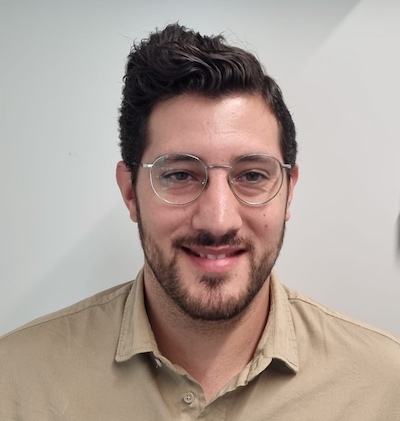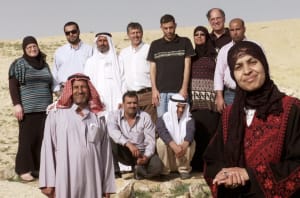How 3 sisters of one of Israel’s greatest enemies came to live in southern Israel with full citizenship
Ismail Haniyeh is the political leader of Hamas, but 3 of his sisters are Israeli citizens

The reports earlier this week about the arrest of Hamas leader Ismail Haniyeh's sister for supporting terror may not have been especially surprising to many outside of Israel. However, what likely caught people's attention is that she is an Israeli citizen living in the southern city of Tel Sheva.
What’s more, Haniyeh's two other sisters are also living in the Israeli Bedouin town with full citizenship, and some of their children reportedly even served in the Israeli army as soldiers.
The information isn't actually very surprising for Israelis, as local media has followed the fascinating story of the senior Hamas leader's Israeli family for decades now.
It began some 40 years ago, back in the time when the Gaza Strip wasn’t as isolated as it is today.
Between 1967, when Israel took the Strip from Egypt during the Six-Day War, and 1994, when control was transferred to the Palestinian Authority (PA), the Gazan towns and villages were not blocked off from the Israeli mainland.
Many older Israelis still tell stories today of how they used to drive into Gaza City for cheap shopping, and often reminisce about the famous Gazan falafel balls.
The Gaza Strip is geographically close to Israel’s Negev Desert, where a large part of the population is comprised of Israeli Bedouin Arabs, who are ethnically somewhat different than the Arabs in Gaza but also Muslims.
Many Bedouins traditionally still practice polygamy, making available single women a rarity in their areas – often causing them to go looking for wives in other nearby Arab regions.
While some find wives in Judea and Samaria, others have been marrying women from the Gaza Strip, which is what happened with the three Haniyeh sisters.
They all married Israeli Bedouin men and, in accordance with Israeli law, received the right to settle in Israel and eventually were granted citizenship.
Their names are Khalidiya, Layla and Sabah, according to a Daily Telegraph article in 2006.
“In a small community like ours there were not enough women to go round, so some of the men would go and look for wives elsewhere,” Yousef Abu Ruqiya, a relative of Khalidiya’s husband, told the Telegraph.
He also remembered the time when their younger brother, Ismail, would come to visit his sisters regularly. “There was another brother, Khaled, who came here to work laying tiles and each year, at the holiday after Ramadan, Ismail would come and visit his brother and sisters.”
While it isn’t clear how or when exactly the connection between the Haniyeh family and the Bedouins from Tel Sheva began, Ismail Haniyeh, himself, is known to have worked in construction there and in other Israeli towns before becoming a full-time terrorist.
In one of the many Israeli TV reports attempting to find the Haniyeh sisters in Tel Sheva to convince them to speak to the press, a local resident told Channel 13 that Ismail Haniyeh used to work there laying tiles, as well as nearby in Beersheva. He added that another family member serves as a Muslim preacher at a local mosque.
An Israeli man in Ashkelon even told the newspaper Maariv that he used to employ the 16-year-old Ismail, back in the 1970s when Palestinians could move freely into Israel.
“I knew him as a worker who only knew how to make tiles. I taught him to work, he worked with me for nine years. He was a great guy. He was honest and smart, not stupid. He was like a family member, he also attended my daughters’ weddings,” Danny Makhlouf said.
When he heard that Haniyeh became involved in terrorism, Makhlouf even drove to his Gaza home to confront him, but it was too late – and Haniyeh continued his career of terror until he became Hamas’ political leader in 2017.
In 2014, a report by Walla News revealed that Haniyeh's sisters married and moved into the town over 40 years ago, before Hamas was founded at the end of the 1980s. The Walla crew also identified one of Haniyeh’s nephews, who didn’t want to be filmed but criticized the path his uncle had chosen, distancing himself from it.
That nephew, at the time too young for army service, might have been a brother to one of Haniyeh’s nephews who enlisted in the IDF, as the Daily Telegraph reported in 2006. Many among Israel’s Bedouins choose to serve their country in the Israeli army.
Another nephew told Israeli Army Radio about his uncle in 2018: “He sometimes calls to find out about how we are or to wish a happy holiday. We don’t talk about his activity in Hamas at all. It doesn’t interest us.”
While Israeli courts have limited the possibilities for Gazans to join their Israeli Arab spouses in Israel in recent years, just two weeks ago an Israeli Arab with a similar background carried out a terror attack, reminding the public of this issue.
Even as many Bedouin men heroically serve in the IDF, with some even giving their lives, other Bedouins, often those with one parent hailing originally from Judea and Samaria or Gaza, decide to become terrorists.
The Israeli right-wing NGO Regavim has issued warnings about the “import” of women from regions significantly more hostile toward Israel, claiming the practice was “Palestinianizing” the Bedouin community and turning them against Israel.
Haniyeh’s family has appeared in the local news several times in past years,
In 2015, sisters Layla and Sabah were issued suspended sentences for illegally visiting the Gaza Strip.
Later that year, Israeli media reported that authorities had denied Haniyeh’s request for his sisters to attend his son’s wedding in Gaza.
In February, reports suggested that one of Haniyeh’s nieces, possibly a daughter of one of his sisters, was being treated in a Tel Aviv hospital.
In addition, many of Haniyeh’s family members, including those living in Gaza, have received medical treatment in Israel over the years, to the great consternation and anger of some individuals.
National Security Minister Itamar Ben Gvir recently told Maariv: “Ismail Haniyeh’s relatives are not only not supposed to receive medical treatment in a hospital in Israel, they are also supposed to be deported from Israel.”
Haniyeh’s mother-in-law, daughter and granddaughter have all received medical treatment in Israeli hospitals over the years, according to the Times of Israel.

Hanan Lischinsky has a Master’s degree in Middle East & Israel studies from Heidelberg University in Germany, where he spent part of his childhood and youth. He finished High School in Jerusalem and served in the IDF’s Intelligence Corps. Hanan and his wife live near Jerusalem, and he joined ALL ISRAEL NEWS in August 2023.
You might also like to read this:
















